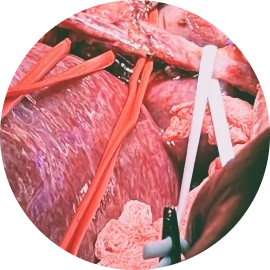The Doctoral Program is committed to providing a comprehensive and well-defined research training path for its candidates. Our vision for the research training path encompasses the following key components:
-
Research Excellence: the Doctoral Program is dedicated to nurturing research excellence. This involves providing candidates with the necessary skills, resources, and mentorship to conduct cutting-edge research in their respective fields, including study planning and implementation, data analysis, results presentation and interpretation, and eventually dissemination within and outside the scientific community of the main findings of the research activity.
-
Interdisciplinary Collaboration: the Doctoral Program promotes interdisciplinary collaboration, encouraging candidates to engage in research that transcends traditional disciplinary boundaries and by promoting specific meeting opportunities to encourage student interaction. This fosters a rich and diverse academic environment.
-
Professional Development: the Doctoral Program prioritises the professional development of candidates by offering workshops, seminars, and training sessions to enhance their research, scientific writing, and communication skills.
-
Ethical Research Practices: the Doctoral Program places a strong emphasis on ethical research practices and integrity (including avoidance of all forms of discrimination). Candidates are guided in conducting research that upholds the highest ethical standards.
 Cell Biology
Cell Biology
The curriculum in Cell Biology is currently based on the knowledge, skills and experience of researchers working in the field of drugs and active molecules, by an integrated and multidisciplinary approach based on precision medicine approaches. The members of this Curriculum are actively involved in national and international scientific networks and research projects mainly focused on drug development and dealing with chemical synthesis, drug design and discovery, pharmaceutical technology, drug delivery and nanomedicines, along with specific expertise on structural biology, biotechnology and biochemistry.
Specific topics include:
• development of efficient (stereo) selective synthetic strategies for newly designed bioactive molecules and libraries as well as their spectroscopic characterization;
• development of efficient strategies for the isolation and structural characterization of natural compounds and assessment of their bioactivity both in vitro and in vivo against cancer, CNS diseases, etc;
• nanomedicine, drug delivery and targeting, pharmaceutical innovation, advance medical products, biologicals and gene non-viral delivery with application on unmet clinical needs (neurological disorders, cancer, etc..);
• development of computational drug design methods based on integration of different tools, e.g molecular modeling, chemoinformatics and artificial intelligence, and their use in prospective drug discovery research projects (cancer, neurodegeneration etc);
• leads and drug discovery, drug/target interaction studies, advanced analytical technologies, proteomics and metabolomics.
 Translational Medicine
Translational Medicine
A “bench-to-bedside” approach is pursued to translate results obtained by experimental medicine into practical solutions to current clinical challenges in the fields of oncology, respiratory diseases, nephrology, dermatology, endocrinology, metabolic diseases, rheumatology and neurology. Innovations in the field of drug development, medical devices and good practice will be implemented with the clinical application as part of the goal of the curriculum in translational medicine. The multidisciplinary approach is considered a must to promote the optimal synergy among basic science and clinical applied research.
Specific topics include:
• molecular and cellular fundamentals of diseases and molecular targets for the pharmacological treatment of organ damage;
• translation to clinical medicine of biomedical advanced technologies (omics, molecular biology, viral vectors, etc.);
• exploitation of new immunological techniques in experimental medicine;
• development of in vivo and in vitro models and technologies based on regenerative medicine to characterize new therapeutic approaches.
 Public Health
Public Health
The mission of the Public Health curriculum is to delve into the key more relevant and more uncertain issues about the health and well-being of populations, focusing on etiology and prevention of human diseases.
Main research topics:
• role of environmental factors, including chemical, physical, and biological risk factors as well as diet and other behavioral factors, in the etiology of human diseases;
• design and critical assessment of public health measures for disease prevention;
• analytical methods for assessing exposure to environmental toxic substances and biological agents in order to improve diagnostic techniques and innovative preventive/ therapeutic interventions;
• study of the mechanisms of infection and new preventive methods to avoid water-acquired infections;
• innovative methodologies to assess health effects of environmental, life-style, biological and genetic risk factors;
• assessments of the efficiency and appropriateness of health services;
• investigation of health education and health risk communication tools and strategies;
• occupational risk factors of human disease;
• use and development of advanced biostatistical tools to process and analyze biomedical data and to carry out systematic reviews and meta-analyses.
